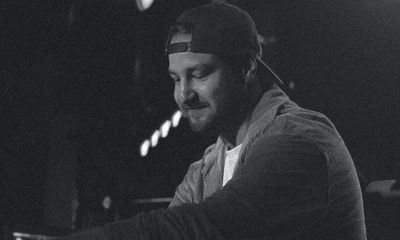dig dis!cover: Marcus Zelonka
As a label manager you have many tasks: Management, Promotion, being an agent and creative director. Can you describe your job at your label Diventa?
I actually manage everything at my label. We produce non-PRO (Performance Rights Organization) music and I take care of the marketing. So I have a website and send the tracks to the agencies. I do the promotion and also the organizational part around the label management. In the beginning, there was no label, but it has developed over time.
What exactly does your everyday life at Diventa look like?
Most of the time I check my mails in the morning and get the releases ready. Often I also do the artwork and create the product for dig dis!. For non-PRO music I also make a release plan of course.
As already mentioned, I send the music to various agencies and networks. To speed up the process I have a tool that I've been using for years now. After that I try to find time to make music. About 15 years ago I also did gigs as a DJ but by now I focus more on management and music production.
Why do you think it's important to have your own label imprint?
It's important to find new artists or to attract attention to one's own label. As a record label you can publish everywhere and you are not bound to an agency. Basically, a label can also be promoted much better. For example, if Mercedes company plays our tracks and wants to "book" us again, they can contact Diventa and see what else we have in our repertoire.
Are there also tasks that you hand in?
If I get a commissioned production and the deadline is tight, then I produce the tracks together with my team. It is often the case that the client would have liked to get the tracks yesterday. For certain genres, I like to have other artists from the team take over. Everything administrative I do on my own.
How did you come to dig dis!
I started out in the marketing field. A previous coworker of mine worked with you and then recommended dig dis! to me. I am also very satisfied with the cooperation and the fast communication. The punctual payment of the invoice should also be emphasized.
The track "Searching" by Lazy Hammock was licensed by CBS for the series "Life in Pieces". Are there any other requests that surprised you?
Yes, my track "French Soul" was played on Tatort and I thought that was great - it was deposited as a piece of music in the Tatort commercials, which also generates income via the GVL. In fact, I only noticed this by chance like most of the time. Before I sent the tracks on to the agencies, I handled the requests myself, but it took a lot of time and effort. By outsourcing this task, I have gained much more time that can better be spent on producing music.
Do you also deny certain license requests?
Yes exactly! Since the agencies take over the whole thing for me, I actually do not know where exactly my tracks are running. As already mentioned I can mostly see where they were played afterwards in my GVL account. I have already rejected various commissions because the price was not right or because it is simply unrealistic to produce so many tracks in such a short amount of time.
Do you only do freelance work or do you also produce music under one of your aliases?
I release my tracks under the artist names "Mazelo Nostra" or "The Diventa Project". These tracks are then released as non-PRO music. Otherwise, I have various commissioned productions, where my music is deposited under certain works or advertisements. For example, in 2009 famous German comedian Mario Barth had a double CD and since spoken word pieces never make it into the charts, I was commissioned to produce music for that show. That was definitely a cool experience.
A topic that doesn’t really belong to the question, but I’ve always thought that the music consumer ends up spending very little or even no money at all.
So that everything in time will be financed by advertising or even by a small contribution of subscriptions. If you think about how much money you spent for an album on iTunes, then it is currently almost no longer justifiable. That's why I think it's so important to release music for free to the consumer and the artist should receive a share from advertising and contribution of subscriptions.
How do you select new artists for your label?
I like singers quite a lot. Apart from that, it's important to me to have my own creativity and that it can also stand out. Whether and which artists I record also often depends on the genre they are specialized in. If I already have some artists in the genre Jazz, then I would not need another one and would rather prefer someone who makes afrobeat for instance. With non-PRO music it often happens that they have a similar sound and so and I think it's good when artists give the whole thing that certain something.
You've been in the music business for years. Is there anything you would give to aspiring artists along the way?
I would say that you should always produce and publish music that you like. There is always at least one person who likes it. You can't discuss taste.
Thanks to Marcus for sharing his story as a label manager with us today. We hope you enjoyed the interview as much as we did. If you are also interested in sharing your story about yourself and your daily music business life with us, then please contact us anytime.



